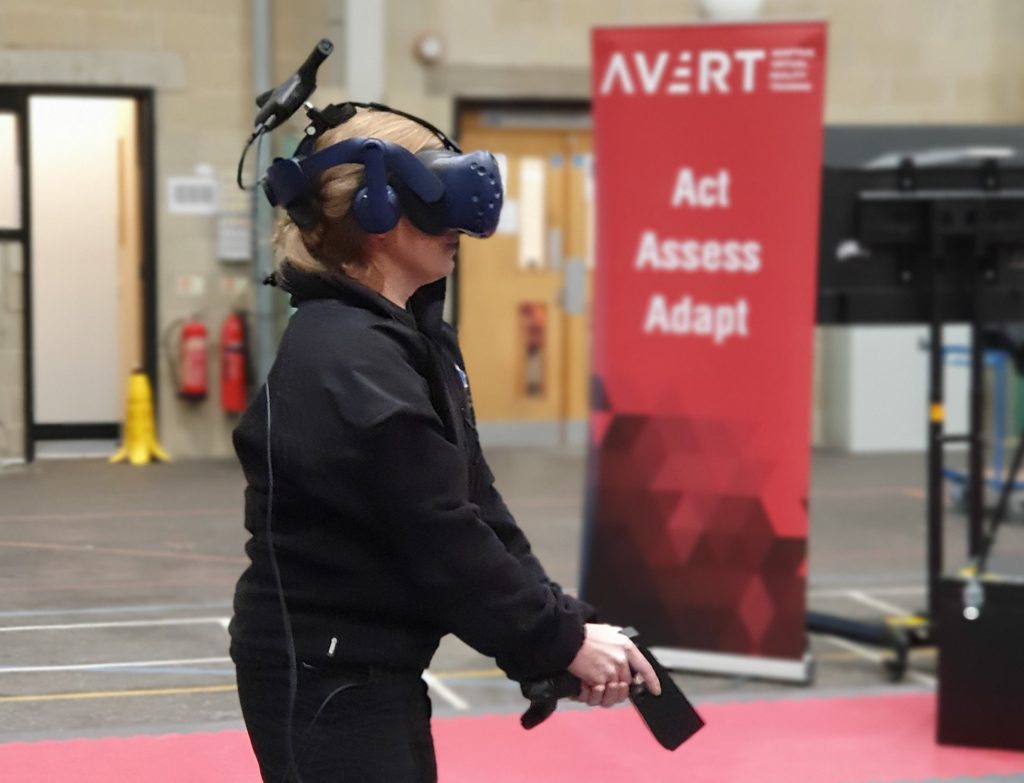VR training is becoming more prevalent and our Emergency Services are now seeing the potential for this kind of technology. We are starting to see a lot of projects and systems out there that are focussing on actions and behaviours but what about the emotional responses of officers to environment and situations?
The AVRT platform was originally scoped and designed to help officers train on the use of force, up to and including lethal and less-lethal but in three years of working closely with over 70% of UK Police forces, we understand that reacting to emotionally charged situations and being able to de-escalate the conflict is as, if not more important than being able to pull the trigger.
There are many VR systems out there that allow users to get into a virtual world and ‘shoot stuff’ but this isn’t the full story. VR training has the ability to create ‘false memories’ in the user meaning that learning outcomes are tied more closely to the experiential actions and that training is more easily recalled in the heat of a charged situation. Simply pulling the trigger on a computer generated character when there’s been no emotional connection undermines the potential of this technology.
Whilst the weapons-handling element of AVRT has always been important, we’ve spent a lot of time ensuring that our dynamic scenarios utilise experienced instructors to present an interaction through voicing the virtual characters with a back-and-forth dialogue to test empathy and de-escalation skills, long before a use of force is required. The scenario can then adapt to the officer’s ability to communicate effectively and resolve the situation.
In our picture, an officer from Dorset Police in the AVRT VR Training system interacts with a virtual character exhibiting the behaviours of a vulnerable person whilst being ready to react with a less-lethal tactical option if a threat is presented.
If we are to realise the full benefits of VR Training in the emergency services, we need to treat this emotional connection as having the same importance as tactical and action-based learning outcomes provided by the more computer-game-style simulations.
The recent Police-related incidents in the USA and the increased focus on justification of Law Enforcement actions worldwide show that it is critical that we utilise this technology to better equip our officers to make, and fully assess, effective decisions. AVRT will continue to work with our Police partners to examine how VR can be used for many more areas of Police training. Upcoming elements will include;
• Initial officer recruitment scenarios
• Domestic violence training and other ‘sensitive’ scenarios
• Negotiation training in stressful situations
• Racial profiling and equality situations
• Public order, areas of enhanced risk and CT simulations
It’s easy to think of VR Training as reducing the ‘people’ element of training however we believe that there is a way to use both the technology and the expertise of experienced instructors to achieve the best outcomes.
Contact andy.higgs@avrt.training for more information on the AVRT system or our work with Police forces around the UK.

